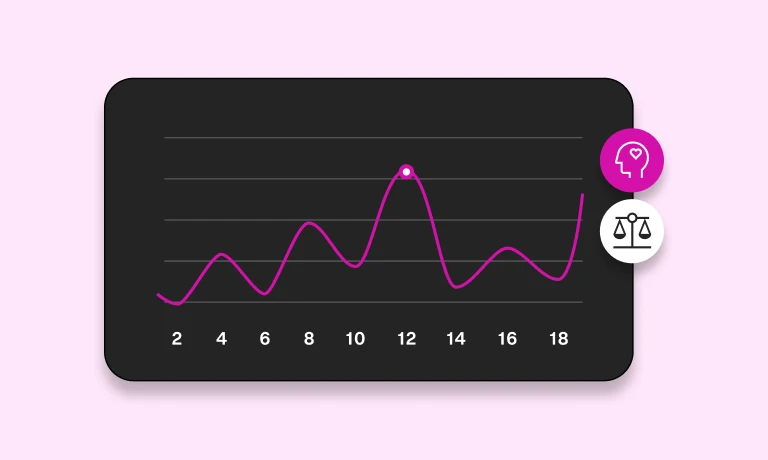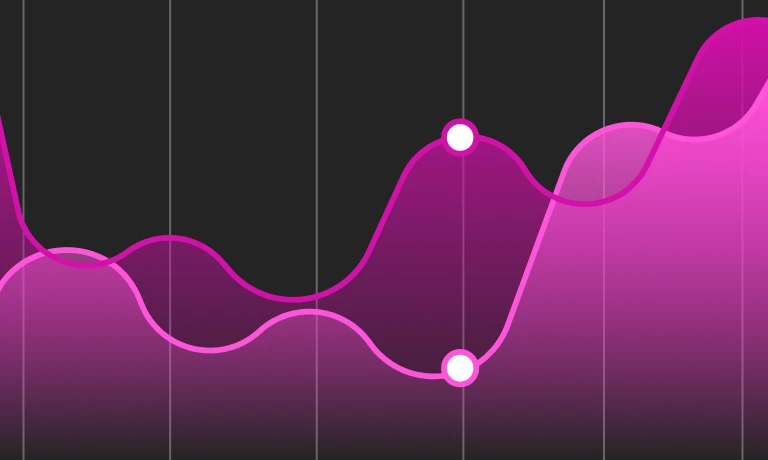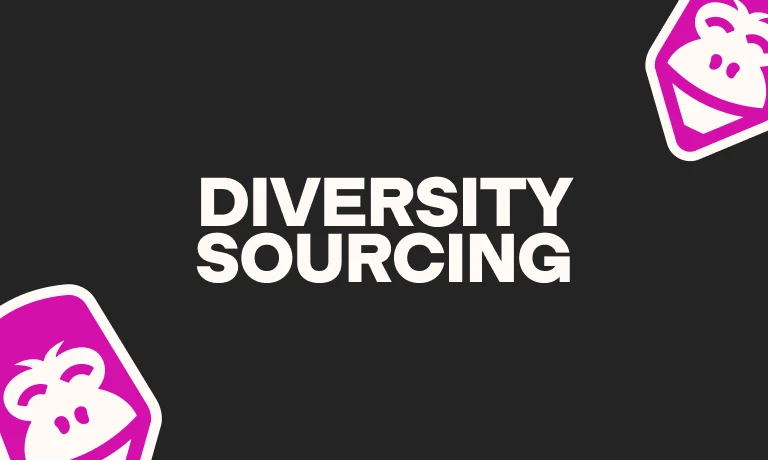How to support ISFPs personality types in the workplace
ISFP personality types, also known as Artists, are among the most caring and creative workers in an organization. They bring empathy and adaptability to their teams, fostering supportive and harmonious work environments.
Like all personality types in the workplace, though, Artists have weaknesses. They often struggle to assert themselves, can be overly sensitive, and aren’t the greatest long-term planners.
With the right guidance, however, ISFPs can make your workplace shine. In this article, we show you how to support your Artist employees so they can share their gifts and overcome their unique challenges.
Overview of ISFPs in the workplace
Introverted (I): Focus on internal thoughts and ideas, enjoy solitude and deep thinking versus external stimulation, and tend to work best when alone.
Sensing (S): Focus on reality instead of possibility, keeping their attention on the present and concrete information.
Feeling (F): Make decisions based on empathy and consideration for others’ feelings, valuing harmony and emotional connection in their interactions.
Perceiving (P): Enjoy flexibility in their jobs and life and dislike sticking to plans.
Strengths and contributions to the workplace
ISFPs bring important strengths to the workplace (and we’ll cover strategies for nurturing each later in this guide). These include:
Creativity: There’s a reason ISFPs are known as Artists: They’re naturally talented at expressing themselves in an artistic way. As such, they excel most in creative roles, including design and writing.
Empathy: Because they understand interpersonal dynamics better than many other personality types, Artists can sensitively resolve tension in teams and facilitate positive relationships between their colleagues.
Adaptability: As with most Perceiving types, ISFPs thrive in flexible workplaces and can easily handle unexpected issues on the fly.
Attention to detail: ISFPs enjoy precision, so they make great quality assurance professionals, editors, and proofreaders in various business functions.
Team support: Collaboration is one of the Artist personality type’s most cherished values. ISFPs are natural champions of harmonious workplaces and encouraging team cultures.
Common challenges and pain points
Be conscious of some of the main drawbacks of working with ISFPs, including:
Feeling easily overwhelmed: Artists can struggle in high-pressure, competitive environments where efficiency matters more than creativity and well-being.
Unassertiveness: Environments where specific team members dominate the conversation can be a major challenge for the reserved ISFP, who might not feel up to voicing their ideas openly.
Problems with authority: A lot of regimentation can make ISFPs – who like freedom and autonomy – feel micromanaged and push them to check out mentally.
Oversensitivity: The Artist’s emotional attunement is a double-edged sword, and they can easily be hurt by negative feedback and challenging interactions with their colleagues.
Short-termism: Because they’re more focused on immediate experiences than long-term goals, ISFPs can be indecisive and procrastinate on important plans and projects.
Thankfully, these challenges aren’t insurmountable. Below, we’ll explore specific strategies you can use to overcome ISFPs’ weak points and harness their natural talents.
Navigating ISFP communication styles and team dynamics
Artist personality types are highly sensitive to their teammates’ needs and can be a pleasure to work with. But they can sometimes be too sensitive – even when receiving constructive feedback on how to improve.
While ISFPs naturally seek and foster harmony within workplaces, you can ensure any issues that do pop up are quickly resolved by using the following strategies.
Effective communication strategies for ISFP personality types
When communicating with ISFPs:
Be patient and empathetic: Feelings – especially at work – aren’t every personality type’s strong suit. Depending on your personality, you might have to put in more effort to actively listen to and validate ISFP team members’ perspectives. Rather than pressure ISFPs into decision-making, be patient and let them express themselves organically.
Make it relevant to them: Create a link between a work task or decision and the ISFP’s values or interests. This is a smart way to frame discussions about Artists’ contributions and how their personal creative visions might bolster larger team goals.
Opt for the creative edge: Give Artists opportunities to work on creative projects and let their artistry loose. Celebrate ISFPs’ unique contributions within the scope of wider business objectives and encourage them to problem-solve and innovate through their creative lens.
Best practices for integrating ISFP personality types into teams
When a team comprises one or more ISFPs, you can keep dynamics as harmonious as possible by following the strategies below.
1. Nurture personal connection
ISFPs perform best when they feel valued and accepted. The reverse is also true: They underperform in workplaces populated by people they feel don’t care about them on a human level.
So, ensure your company culture gives ISFPs (and all employees) the opportunity to openly voice their feelings about projects and workflows, as well as regularly connect with their colleagues on these topics. For more insight, read our guide on creating a positive company culture.
2. Promote autonomy and flexibility
Allow ISFPs some independence with their workflows to allow their creativity to truly flourish. For instance, offer flexible deadlines, or give them a goal with the freedom to achieve it how they best see fit. Remember, they dislike micromanagement and want to be able to pursue projects aligned with their passions and interests.
3. Encourage collaboration
ISFPs enjoy independence but also excel in collaborative environments. Connect them with their teammates through group projects, like brainstorming sessions to solve cross-functional business problems, and team-building activities, such as company-paid dinners or weekend outings.
Tips for preventing and resolving conflicts
When conflict involving ISFPs does arise, it can be painful for them. Avoid these delicate situations with the following tips:
1. Address issues with sensitivity and compassion
Empathetically approach conflicts between ISFPs and other team members. By listening to every perspective without direct confrontation, you can focus on win-win solutions to tough problems involving even those team members who might be less sensitive than Artists.
2. Encourage compromise and flexibility
ISFPs may be sensitive, but they’re also adaptable, open-minded, and willing to consider alternative viewpoints and solutions. To help them tap into these innate abilities, encourage Artists to find common ground with their teammates and explore compromises that address everyone’s needs.
3. Keep lines of communication open
ISFPs may not feel as comfortable expressing their concerns as other more assertive personality types. Regular one-on-one check-ins can be an effective way of giving ISFPs a chance to share their concerns, offer feedback, and ask questions without feeling steamrolled.
Within team meeting settings, prioritize open dialogue and active listening among team members. For example, ask for ISFPs’ feedback specifically and then ask the rest of the team for their thoughts on these ideas. This encourages ISFPs to open up but prevents them from feeling overwhelmed.
4. Offer constructive, supportive feedback
Avoid direct criticism of ISFPs when giving feedback. Focus on the specifics of how they can improve – without being confrontational. Highlight their strengths and how they can better tap into them for everyone’s benefit. Keep the feedback supportive, and grateful ISFPs will give a lot back to your business.
The best insights on HR and recruitment, delivered to your inbox.
Biweekly updates. No spam. Unsubscribe any time.
How to motivate and engage ISFPs
Passionate, invested employees keep businesses ticking along. How do you keep an Artist’s creative spark lit? Let’s discuss below.
What motivates ISFP personality types at work
ISFPs are drawn to workplaces that offer them purpose, creative freedom, and personal growth opportunities. Give Artists the space to express their creativity and contribute to projects that mean something to them, and they’ll be more likely to stick around for the long haul.
Naturally, businesses with creative functions can amplify their growth when employing ISFPs in creative roles. But for less traditionally artistic companies, even a whiff of a design, art, or writing project can motivate an ISFP looking for a creative angle.
Strategies for engaging ISFP types
Here’s what to do to keep ISFP employees nourished and flourishing:
Assign them creative projects: Artists shine brightest in the most creative departments in the workplace. Design, writing, and quality assurance-based roles help ISFPs demonstrate their unique talent to help grow the business and explore their artistic passion, ensuring loyalty in the long run.
Encourage self-expression: Workplaces that champion and reward creativity and innovation will find ISFP allies. While Artists' work may not always fit the traditional corporate mold, it can prove invaluable to a business’s long-term competitiveness. Try to give ISFPs the space they need (within reason) to express themselves where necessary.
Offer personal development opportunities: Encourage ISFPs in creative industries to hone and expand their skills with relevant qualifications that will help both them and your company grow. In less obviously creative industries, recommend attendance at workshops and classes that allow ISFPs to develop their talents and provide much-needed innovative fuel to the business.
Recognize their achievements: When ISFPs achieve success – artistic or otherwise – acknowledge and celebrate it. Share it with the rest of the team, either in an email or in a group huddle. Appreciate their contributions, and they’ll give you even more to your organization.
Facilitate relevant networking: Encourage Artists to connect with like-minded people in their industry at networking events. If your organization is large enough, help establish links between ISFPs in different business functions who share the same values, passions, and craft.
Guidance on personal development and career growth for ISFPs
Career fulfillment is essential for ISFPs because it’s tied to their personal growth. Follow the advice below to support ISFPs’ growth within your company.
1. Encourage experiential learning
ISFPs tend to prefer hands-on learning. Even in digital workplaces, jobs like front-end design or marketing can provide the perfect breeding ground for new and creative ways of working.
Special projects with other departments can also give Artists’ work more exposure and help them discover additional interests that might yield dividends for your company down the line.
2. Provide autonomy and flexibility
ISFPs want to work in their own way, at their own pace. Allow artists to manage their tasks and projects independently and provide support when needed. Flexible work arrangements, including remote work, can help ISFPs balance their lives with this need for autonomy.
3. Support their holistic well-being
Some personality types may compromise their emotional and mental well-being for professional growth. ISFPs won’t. To ensure Artists aren’t checking out because they’re burnt out, provide mindfulness workshops, stress management seminars, and employee assistance programs as part of your overall benefits package.
4. Encourage creative problem-solving
ISFPs do well finding innovative solutions to all kinds of challenges in the workplace, so let them try out what could pay off in the long run. If you have a healthy risk appetite, give ISFPs a space to tackle tough business problems – such as improving customer satisfaction or developing a new product.
Unleash ISFP creativity with TestGorilla
ISFPs can help kickstart or reinvigorate businesses needing more creative thinking. At their best, Artists are supportive, creative, and empathetic. Though they can sometimes be overly sensitive and need more care than other personality types, they’re also the social glue that keeps teams working happily together.
Roll out TestGorilla’s 16 Personalities test to identify the ISFPs – and other personality types – in your workplace. Then, follow the tips and tricks outlined in this guide to support, motivate, and retain them.
Want to know more about how TestGorilla can help your workforce succeed? Create a free account, explore our test library, or sign up for a free live demo today.
You've scrolled this far
Why not try TestGorilla for free, and see what happens when you put skills first.


















